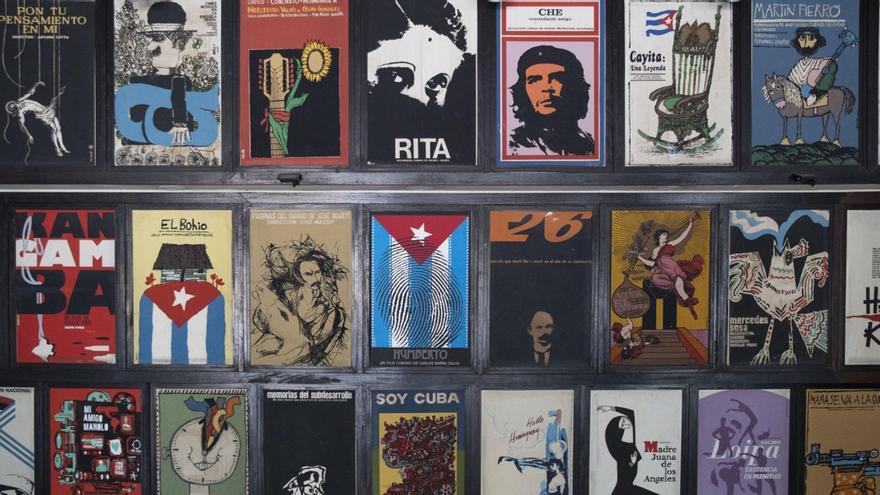
![]() 14ymedio, Havana, August 2, 2023 — Far from freeing the economy and easing state restrictions on private individuals from, the government insists on enacting laws that further control the Cuban economy. This Tuesday the Official Gazette published a decree of the Council of Ministers that regulates industrial design and visual communication in Cuba. The law, which provides for the creation of a National Design System, prohibits the unauthorized use of the Country Brand and the Cuba Image, and aspires to become a guarantor of the “values forged by the Revolution.”
14ymedio, Havana, August 2, 2023 — Far from freeing the economy and easing state restrictions on private individuals from, the government insists on enacting laws that further control the Cuban economy. This Tuesday the Official Gazette published a decree of the Council of Ministers that regulates industrial design and visual communication in Cuba. The law, which provides for the creation of a National Design System, prohibits the unauthorized use of the Country Brand and the Cuba Image, and aspires to become a guarantor of the “values forged by the Revolution.”
Although the National Design Office – the body that until now was in charge of the work of designers – will continue to be active, the new National System will supervise all the processes of creating clothing, furniture, printed or virtual publications, machinery and any graphic or visual comunication.
However, the symbols and images that the State considers to be part of the national identity may not be used in any work without the permission of an “authorized authority,” a warning already included in the controversial National Symbols Law.
Among the principles enumerated in the decree, the “preservation of the values forged by the Revolution” is also insistently included, although it suggests that it will also defend “non-discrimination” against designers and their protection against “distinctions that are harmful to human dignity.” However, the document does not clarify how anyone who attempts with their designs to go against the “social project” of the regime will be penalized.
The Minister of Industries, Eloy Álvarez, attached to the decree an evaluation regulation that will allow the “advisors” of the National Design Office to require the company directors to modify or stop the production of products that they consider “not acceptable.”
The authorities will also have the last word in awarding prizes to designers, financing and international collaboration, the approval of regulations and the ease of access to certain services.
In addition, “expert” commissions will be created to control not only the products and services but also their application within the country, their value as exportable goods, prices and rates, and their quality.
Foreign companies, like national ones, will have to obey the new regulation if they intend to change their image or brand while operating in Cuba. The rule also affects small and medium-sized enterprises (MSMEs) and self-employed workers, since there are no exceptions based on the type of management.
As for design professionals, to be recognized as part of the National System they will have to first register in the National Registry of Visual Designers and Communicators. This guarantees, the document alleges, that their copyrights and intellectual property rights are respected.
With the new project, the Government puts the entire industry under its command. Despite the fact that the decree may notably affect the work of hundreds of designers in the country, the official press has not yet published its contents.
However, already on social networks some profiles related to the Government have asked that the advance of brands that, they consider, represent a “return to capitalism” be “stopped.”
Facebook commenter Diego Funes-Álvarez saw “high danger” in the fact that an old sign for the Esso gas station was hung in the middle of Calle 12, in Havana. “It is sad to think that in the popular imagination this type of banner is still considered a symbol of prosperity,” he lamented, in the middle of a diatribe against the Coca-Cola posters that some owners put up in “little bars in Old Havana.”
Funes-Álvarez concluded his publication by asking for an express prohibition of the “good propaganda” of capitalism. The new Decree on Design supports him.
____________
COLLABORATE WITH OUR WORK: The 14ymedio team is committed to practicing serious journalism that reflects Cuba’s reality in all its depth. Thank you for joining us on this long journey. We invite you to continue supporting us by becoming a member of 14ymedio now. Together we can continue transforming journalism in Cuba.
